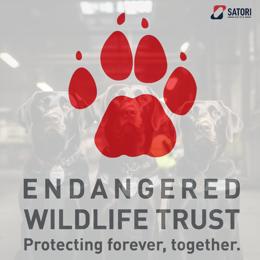Image created by AI
Durbanville Resident Sentenced for Wildlife Trafficking Amidst Western Cape's Fight Against Environmental Crime
In a notable victory for wildlife protection, the Western Cape’s judicial system has made a clear statement against the illegal wildlife trade. A 42-year-old Durbanville local faced the full might of the law at the Bellville Regional Court for his part in a broader network of international wildlife trafficking.
The convict was handed a six-year prison term, which is suspended for five years on the stipulation that he does not re-offend under environmental laws. Additionally, the court mandated a substantial fine of R100,000. This exceptional case encompassed 16 charges, including the possession and trafficking of 56 protected animals – ranging from birds to snakes and spiders.
The arrest, which took place following thorough investigations by the South African Police Service (SAPS) Kuils River Stock Theft and Endangered Species Unit, along with CapeNature, unveiled a major wildlife crime. The confiscated animals from the Durbanville property included several dangerous and protected species, prohibited in private captivity by the local laws of the Western Cape.
The collaboration between SAPS, CapeNature, the United States Fish and Wildlife Service’s Office of Law Enforcement, and the national Department of Forestry, Fisheries, and the Environment’s Environmental Enforcement Fusion Centre has been pivotal. This joint task force not only apprehended the individual but also linked him to two other convicted wildlife criminals, showcasing the international nature of this dark enterprise.
Significantly, the seizures encompassed over 40 highly venomous snakes, including three adult Mangshan Pit Vipers, a Critically Endangered species currently facing the threat of extinction. These snakes, unique to a remote area in China, are under severe threat from illegal trading practices which severely compromise their already dwindling numbers in the wild.
CapeNature's CEO, Dr. Ashley Naidoo, expressed satisfaction with the outcome, emphasizing the deterrent effect of the sentencing and the power of collaborations. In the wake of these events, CapeNature, in concert with various stakeholders, is arranging the repatriation of the Mangshan Pit Vipers to China as part of a conservation effort. There, they can contribute to a breeding program aimed at reinvigorating the species' wild populations.
Authorities are demonstrating their commitment to crack down on environmental crimes vigorously. CapeNature regulates all aspects related to wild animal activities within the province, including hunting, trading, possession, and transport. Public awareness and action are encouraged, with various channels available for reporting suspicious activities and obtaining necessary permits.
Efforts to protect the Western Cape's rich biodiversity extend beyond enforcement. Educational initiatives, such as the interpretation of the local environment through the eyes of Siya, the Orange-breasted Sunbird, provide foundational knowledge and appreciation for the region's unique landscapes. Likewise, recreational opportunities like slow hiking trails encourage environmentally conscious tourism, reinforcing a culture of preservation and respect for nature.
In tandem with these protective measures, the region continues to grapple with pressing environmental concerns such as coastal pollution. Reports pinpoint the negative impacts on local wildlife and the risks posed to human health, thus highlighting the urgency for sustainable waste management solutions.
In a balance between conservation and celebration, the Whale Festival in Hermanus stands as a testament to the Western Cape's steadfast commitment to environmental awareness, spotlighting the area's marine beauty and the importance of safeguarding whale populations.
The enforcement and conservation landscape in the Western Cape remains active and multifaceted. Stringent law enforcement paired with education, tourism, and waste management initiatives points to a comprehensive approach to environmental stewardship in the region.




